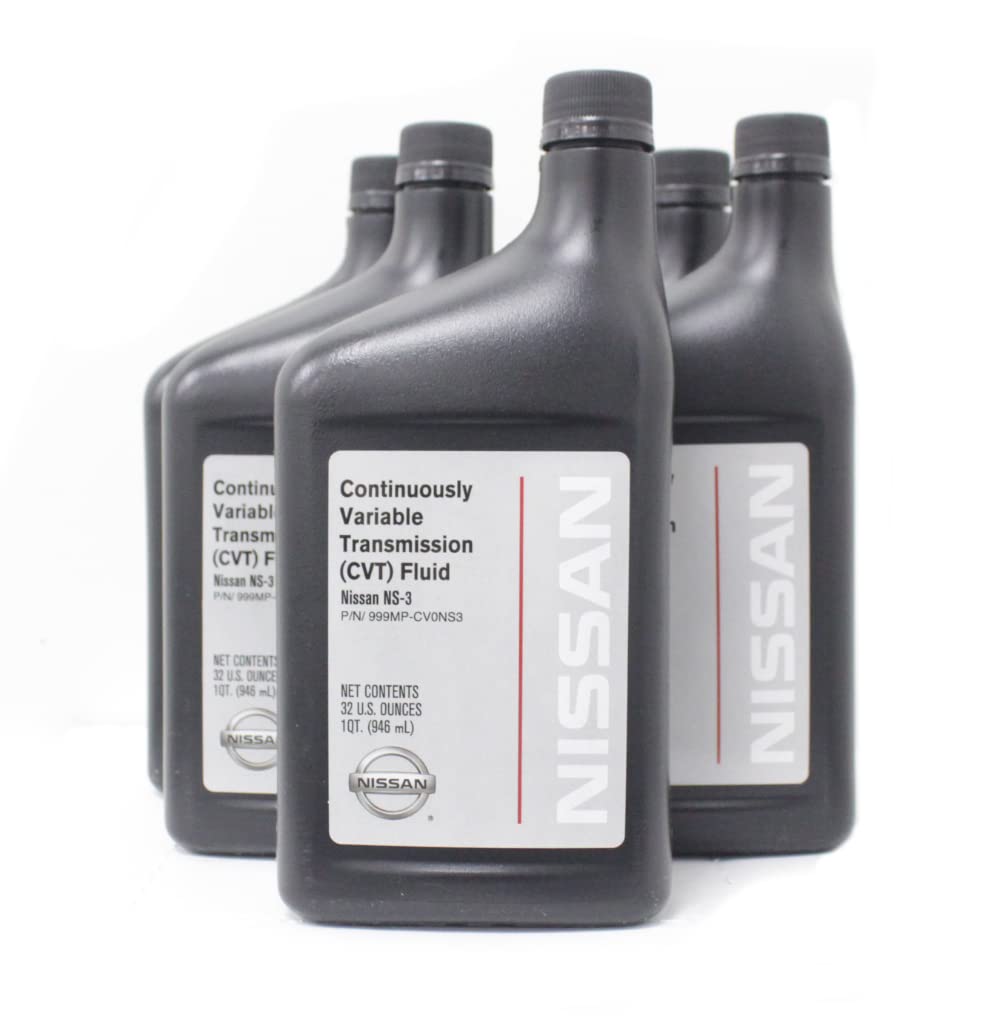What is a CVT?
The Continuously Variable Transmission (CVT) is a type of automatic transmission that has become increasingly popular in today’s vehicles. Unlike traditional automatic transmissions, the CVT uses a belt and pulley system to provide an infinite number of gear ratios, allowing for smooth and efficient acceleration. With this technology, however, also comes the responsibility to properly maintain the CVT in order to ensure that it continues to provide the same smooth and efficient performance.

What Makes CVT Unique?
Unlike traditional automatic transmissions, CVTs provide infinite gear ratios due to the use of a sophisticated belt and pulley system. This unique mechanism allows for seamless transitions between speeds, ensuring a more refined and fuel-efficient ride. But with this novel technology comes the added responsibility of adequate maintenance to guarantee continuous top-notch performance.

When to Change CVT Transmission Fluid?
The frequency with which you should change your CVT (Continuously Variable Transmission) fluid can depend on various factors, including the make and model of your vehicle, your driving habits, and the conditions in which you typically drive. However, as a general rule of thumb, many manufacturers recommend replacing CVT fluid every 30,000 to 60,000 miles.
Some newer models with CVT might have longer service intervals, up to 100,000 miles, but it's crucial to consult your vehicle's owner manual or contact your car manufacturer or a trusted mechanic to get the most accurate information for your specific vehicle.
Nissan CVT Transmission Fluid Change Interval
Driving a Nissan comes with many advantages, and one of them is the Continuously Variable Transmission (CVT). This unique component uses CVT fluid, sometimes referred to as Nissan CVT oil, rather than traditional transmission oil. But how often should this cvt fluid change occur? Nissan recommends changing the CVT fluid every 60,000 miles, or 96,561 kilometers, under "severe" driving conditions, which include:
- Repeated short trips of less than 5 miles in normal temperatures or less than 10 miles in freezing temperatures.
- Stop-and-go traffic in hot weather or low-speed driving for long distances.
- Driving in dusty conditions or on rough, muddy, or salt-spread roads.
- Towing a trailer, using a camper or car-top carrier, or driving for other heavy loading that requires considerable amounts of vehicle acceleration.
However, for "less severe" driving conditions, Nissan has said that it's okay to never change the CVT fluid. Regardless of the manufacturer's recommendation, it's a good idea to change the CVT fluid every 60,000 to 100,000 miles to maintain optimal performance, but please consult with a Nissan service center or your car's owner's manual for the best advice for your specific model and driving conditions.
Remember that using the wrong type of transmission fluid can cause significant damage, so make sure to use Nissan's recommended CVT fluid. If you notice any signs of transmission problems, such as unusual noises, hesitation, or shifts in your car's performance, have your vehicle inspected as soon as possible. The CVT fluid's primary function is to keep the transmission running smoothly. Therefore, if the fluid level drops or if the CVT oil becomes contaminated, it can affect your vehicle's performance. Checking the fluid level regularly ensures your CVT system is not running low on Nissan CVT fluid and can help prevent more significant issues such as a Nissan CVT transmission repair. So, how do you change your Nissan CVT fluid? The process begins with the drain plug located on the bottom of the transmission. Before removing the drain plug, place a drain pan beneath it to catch the used fluid. Once you've drained the old Nissan fluid, you can replace the drain plug and fill up the transmission with fresh Nissan CVT oil.
Nissan Sentra CVT transmission fluid change
The general rule of thumb for a Nissan Sentra CVT transmission fluid change, for example, is every 30,000 to 60,000 miles. However, the vehicle's operating conditions can also dictate how often to change transmission fluid.
INFINITI CVT Transmission Fluid Change Interval
Infiniti is a luxury vehicle division of Nissan. Similar to Nissan, Infiniti recommends CVT fluid changes under certain driving conditions. It's generally recommended to change the fluid every 60,000 miles under "severe" driving conditions, which may include:
- Frequent short trips (less than 5 miles in normal temperatures or less than 10 miles in freezing temperatures).
- Heavy city traffic during hot weather.
- Driving in dusty, rough, or salt-spread roads.
- Towing a trailer or other heavy load.
Under "less severe" driving conditions, Infiniti may suggest longer intervals between fluid changes or state that fluid changes are not necessary.
The Role of Transmission Fluid in a CVT
The transmission fluid in a CVT is more than just a lubricant.
Lubrication and Cooling: Key Functions of Transmission Fluid
One of the most important aspects of CVT maintenance is regularly changing the CVT transmission fluid. The transmission fluid in a CVT is responsible for lubricating the moving parts of the transmission and keeping it cool. Over time, transmission fluid can become contaminated or lose its viscosity, leading to decreased performance and even transmission failure. As a result, it is important to keep the transmission fluid clean and at the correct level.
The Impact of Neglected Transmission Fluid
When transmission fluid becomes contaminated or loses its viscosity, the performance of your transmission declines. Worst case scenario, this could even lead to transmission failure. Therefore, to keep your transmission in top shape and maintain optimal vehicle performance, it's crucial to keep the transmission fluid clean and at the right level.
Regularly changing the CVT transmission fluid is the best way to ensure that it is in good condition and performing optimally. Most manufacturers recommend changing the CVT transmission fluid every 30,000-60,000 miles, depending on the make and model of the vehicle. This interval is designed to ensure that the fluid is in good condition and does not cause any damage to the transmission. However, it is important to note that some vehicles may require more frequent fluid changes, depending on the type of driving and the age of the vehicle. Some manufacturers may even recommend a transmission fluid flush rather than a simple fluid change.
Changing Your CVT Transmission Fluid: The Golden Rule of Maintenance
Changing your CVT transmission fluid regularly is the cornerstone of CVT maintenance.
Optimal Fluid Change Intervals
Most manufacturers recommend changing the CVT transmission fluid every 30,000 to 60,000 miles. This interval is designed to ensure that the fluid is in good condition and prevents potential transmission damage. However, this interval may vary depending on the type of vehicle, your driving style, and the vehicle's age. Some manufacturers may recommend a more frequent fluid change, or even a complete transmission fluid flush.
Choosing the Right Fluid
When changing the CVT transmission fluid, it is important to use the correct type of fluid. Different vehicles require different types of transmission fluid, so it is important to consult the owner’s manual or a certified mechanic to determine the correct type of fluid for your vehicle.
The Dangers of Incorrect Fluid Levels
It is also important to use the correct amount of fluid when changing the CVT transmission fluid. Too much or too little fluid can have an adverse effect on the transmission and lead to costly repairs.



